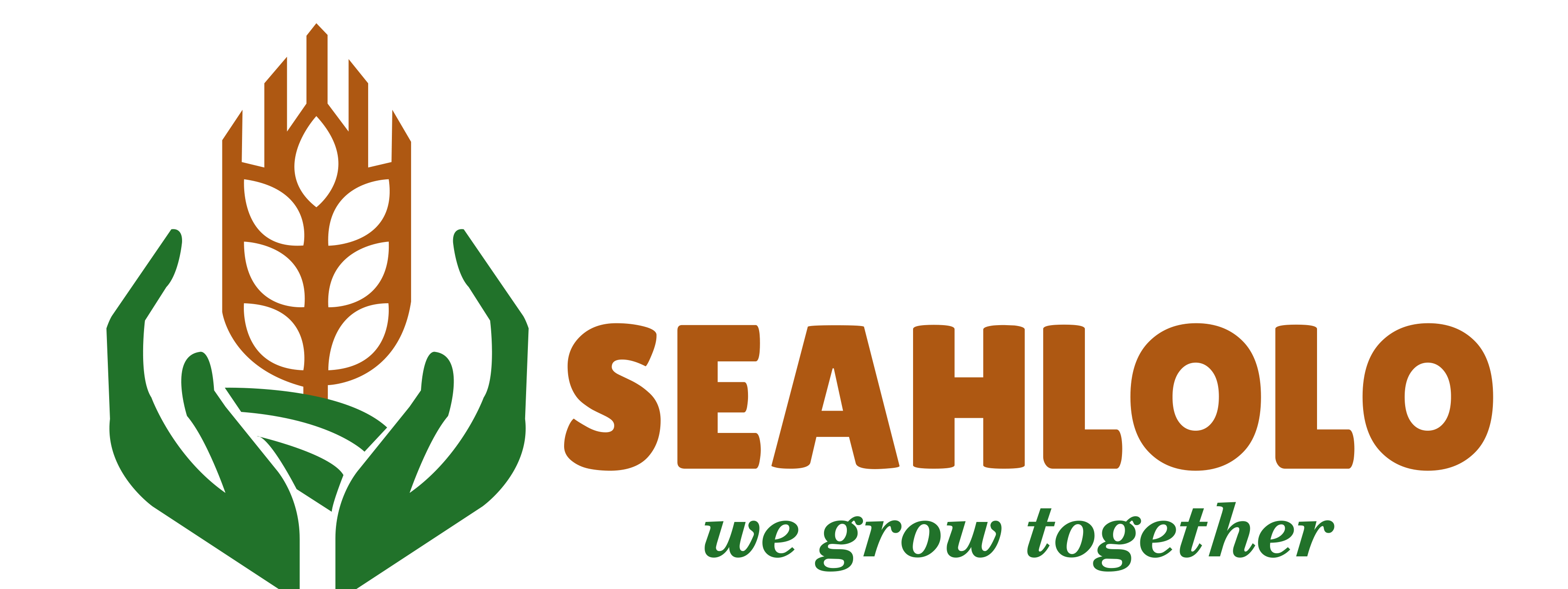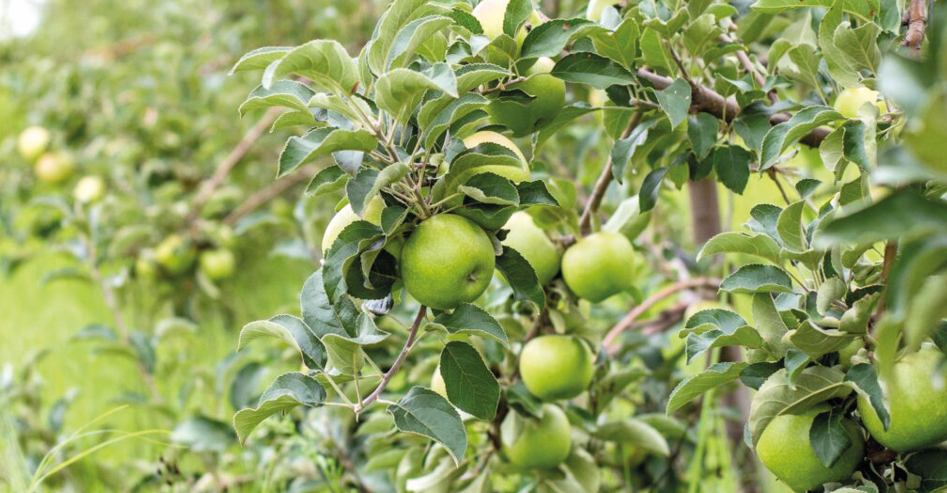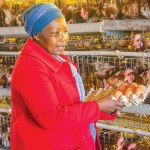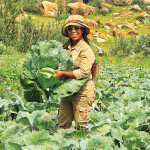Botle Farm is quietly positioning Sehlabeng as Lesotho’s promised land of high-quality apples.
Rare for the peri-urban terrain, the farming activities of Botle Farms stand as a promising future for Lesotho’s orchard farming.
Founded in 2015 by 44-year-old Seahle Letsie and his sister Moipone Ndlovu, the farm began with just a handful of apple trees and a dream to bring fresh fruit to Lesotho market and today, it is one of the few orchards supplying fresh apples to communities and vendors in Maseru, carving a path for fruit farming in a country better known for maize and livestock.
Apple farming in Lesotho is an act of both courage and deep belief.
The climate, soil conditions, and limited access to farming resources make orchard management especially demanding. But for the Letsie siblings, the vision was rooted in service.
“Orchards are rare in our country, with the biggest funded by the World Bank. Seeing its success, we believed in the potential of Botle Farm to serve our people with fresh apples and trusted the land to listen to our drive,” says Seahle.
Their orchard quickly gained attention not only for its produce but also for its impact. “The apples now feed local households, supply street vendors in the capital, and even support small-scale entrepreneurs producing juice and wine. We achieved more than we had anticipated,” Seahle continues.
Their journey has been one of growth.
In October 2024, the farm received 1,500 new apple trees, including varieties like Grensmith, Golden Delicious, and Early Red. The trees are expected to begin bearing fruit by 2027, as apple trees, depending on the type, typically take two to four years to mature.
“The goal is not just to expand, but to offer high-quality, diverse apples that meet local demand and reduce reliance on expensive imports.”
Botle Farm’s orchard is more than just a patch of fruit trees; it is a symbol of resilience and community progress pushed by determination.
“We are proud to see our apples sold in the city. Every apple we grow is a step toward independence for our community.”
The farm has created jobs for ten workers, offering rare employment opportunities in a region where joblessness is widespread. The ripple effect is clear: by growing apples, Botle Farm is also growing entrepreneurs, families, and futures.
The journey has not been without its challenges.
Pests and diseases threaten the health of the trees, but Letsie remains hopeful.
“These challenges are part of the farming journey, but we manage through close monitoring of our produce. We have a dedicated team tasked to ensure any suspected case is attended to immediately,” he says.
With water playing a pivotal role in the success of plants, Seahle says initially, irrigation was done manually using watering cans, a time-consuming task that forced them to think creatively and invest in growth.
“…now, the farm is finalising a deal to install micro-jet sprinklers, a more efficient system that will conserve water and improve tree health.”
“We are also in the process of introducing net shading to protect the young trees from harsh weather and pests. With years of failed attempts and lessons learned, all that we are implementing is a reflection of the family’s long-term commitment to sustainable orchard care to ensure we win and succeed in this journey,” Seahle stresses.
Their approach offers lessons for other aspiring farmers across Lesotho.
Through dedicated pest control, investment in irrigation technology and hiring skilled local labourers, Botle Farm is demonstrating that orchard farming can thrive with the right mindset and support. Community involvement remains central to their success. The orchard has inspired pride in the area, showing that agriculture can be both nourishing and transformative.
Apples themselves are a gift of nature. Rich in fibre, vitamins, and antioxidants, they help fight chronic diseases, improve digestion, and strengthen the immune system. But beyond their nutritional value, they carry symbolic weight in Thuathe. As Seahle puts it, “Every apple we grow is more than just food, it is a statement that we, too, can feed our people and shape our future.”
He says he is passionate about encouraging Lesotho’s youth to follow in his footsteps of trying out the land for possibilities.
“Orchard farming is not just about planting trees but a journey of patience on the soil, a test of trust in the team and mostly, it is about planting the seeds of your future. It requires patience and hard work, but the rewards are great.
“You can create jobs, support your families, and contribute to our country’s food security,” he says, narrating that they started small with contention as their driver.
“We put in the work manually, but mostly we invested a lot of time to learn this sector we were venturing into, especially from the perspective of Lesotho, where Orchard farming is not that popular. We were never shy to innovate with new technologies. Our orchard began with just a few trees, and now it feeds communities and inspires others. The land is waiting, and the opportunities are open to be grabbed,” he says.
The story of Botle Farm is a reminder that even in the most challenging environments, growth is possible with determination and heart. From a few apple trees to a thriving orchard, from hand-watering to modern irrigation, and from quiet beginnings to a powerful community movement, the journey of the Letsie siblings is proof that agriculture, when rooted in love and vision, can blossom against all odds.
“Our journey is just beginning, and we are committed to growing Botle Farm into a beacon of success for orchard farming in Lesotho,” says Seahle.




